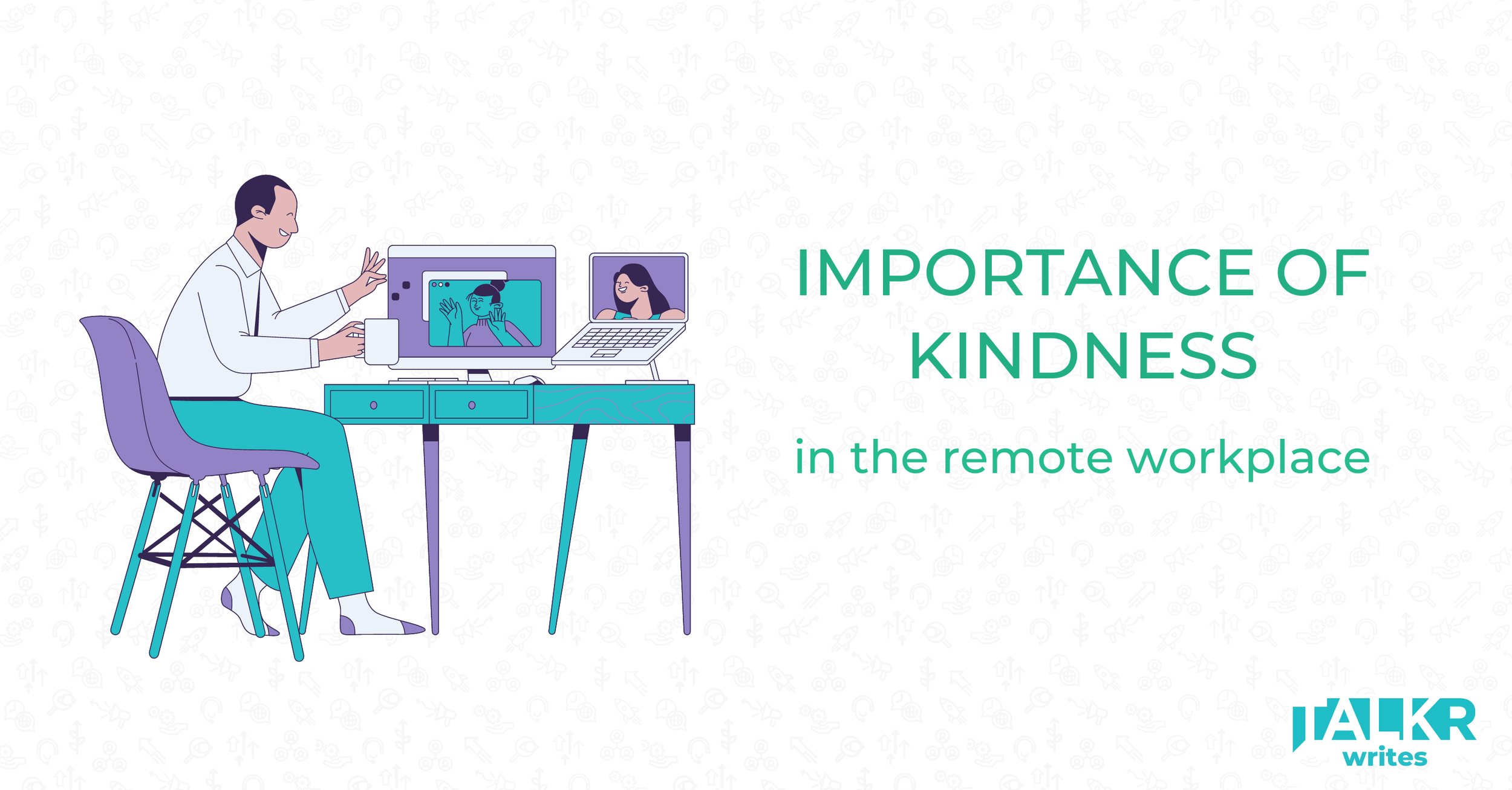Importance of kindness - in the remote workplace
Summary: We talk about what kindness means in the workplace, why it is important for your business to create a culture of kindness and how you can achieve this when working with remote teams
What is a random act of kindness?
I once walked into Pret to grab a coffee and the server asked if I’d like a free gingerbread man today? Pret staff are encouraged to give away free stuff every now and again to random people to make them feel good. This unexpected feel good feeling is powerful as it strengthens the bond between customer and brand.
I enjoyed the gingerbread man…
Now let’s take this to the work environment where leaders are looking to make their employees feel happy and strengthen the bond between them and the company. A strong bond will lead to a more motivated, productive and successful team member.
And the good news is leaders don’t need to hand out free gingerbread men every day to be kind…
Random acts of kindness in the workplace?
Now, I think great business leaders of the past did these random acts of kindness but more simply. They did not need to reward their teams with incentives, that’s what salaries are for, but with encouragement, positive feedback and kindness. A study in the US showed that even small workplace gestures of kindness, a simple “well done”, have almost the same effect as larger ones.
Fast forward to now where more teams are working remotely, outside of the office setting, do you still have those same “kindness” interactions with your team. The “good job on the presentation” in the corridor, the lunch time recap of a good meeting you had or simply to verbally say “thank you”.
These social interactions when working with remote teams are important and as a leader you need to find the time to be kind. Arguably this removes the “random” nature of the kindness but in my experience the interaction will always hold weight if you are being genuine with your praise and encouragement.
Benefits of creating a culture of kindness in the workplace
The most obvious benefit is to the employees of your business. Being recognised and encouraged at work helps improve employee well-being and reduce burnout.
Secondly, research has shown that an act of kindness is often paid back and not always to the same person but to somebody new. By creating this culture of kindness the same research has shown it can lead to lower turnover rates, higher productivity and accelerate innovation.
Leaders need to lead by example. Offering praise and encouragement from the top down will create a culture of kindness that will motivate employees. But, when working with remote teams leaders do need to recognise that the serendipitous meets in the corridor and chats over lunch won't just happen. They need to set time aside to ensure these teams (and the company) are not missing out.


